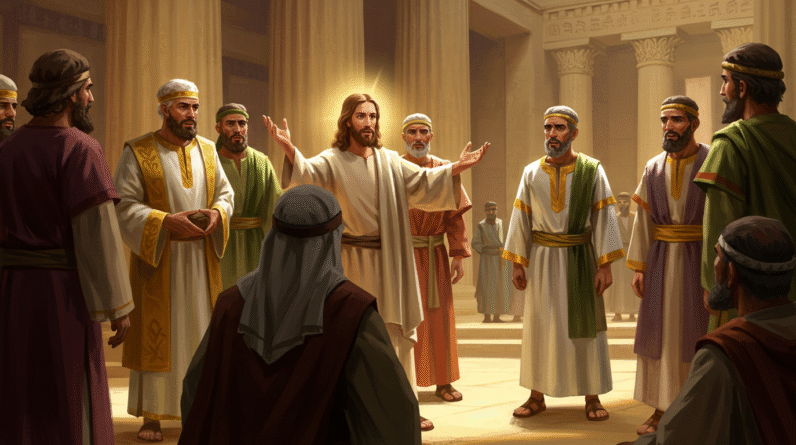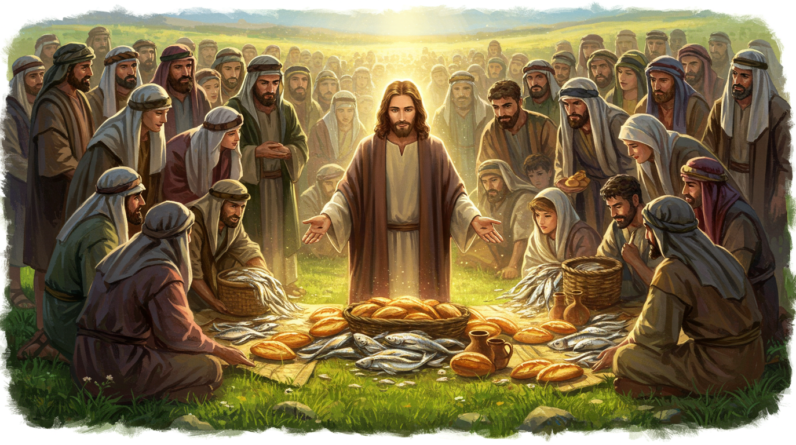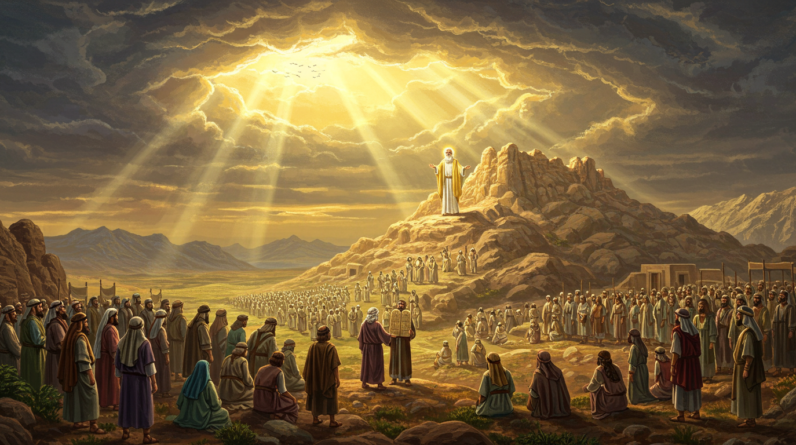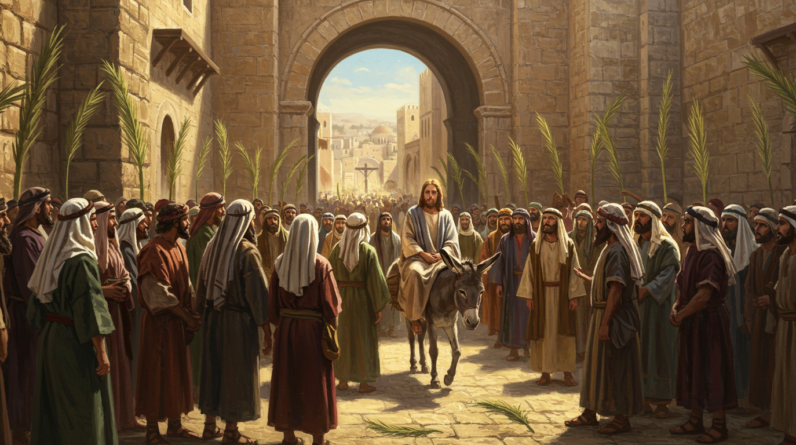Explore the essence of the early church in Acts 2:42–47, discovering lessons on unity, devotion, and selflessness that resonate deeply in today’s world.
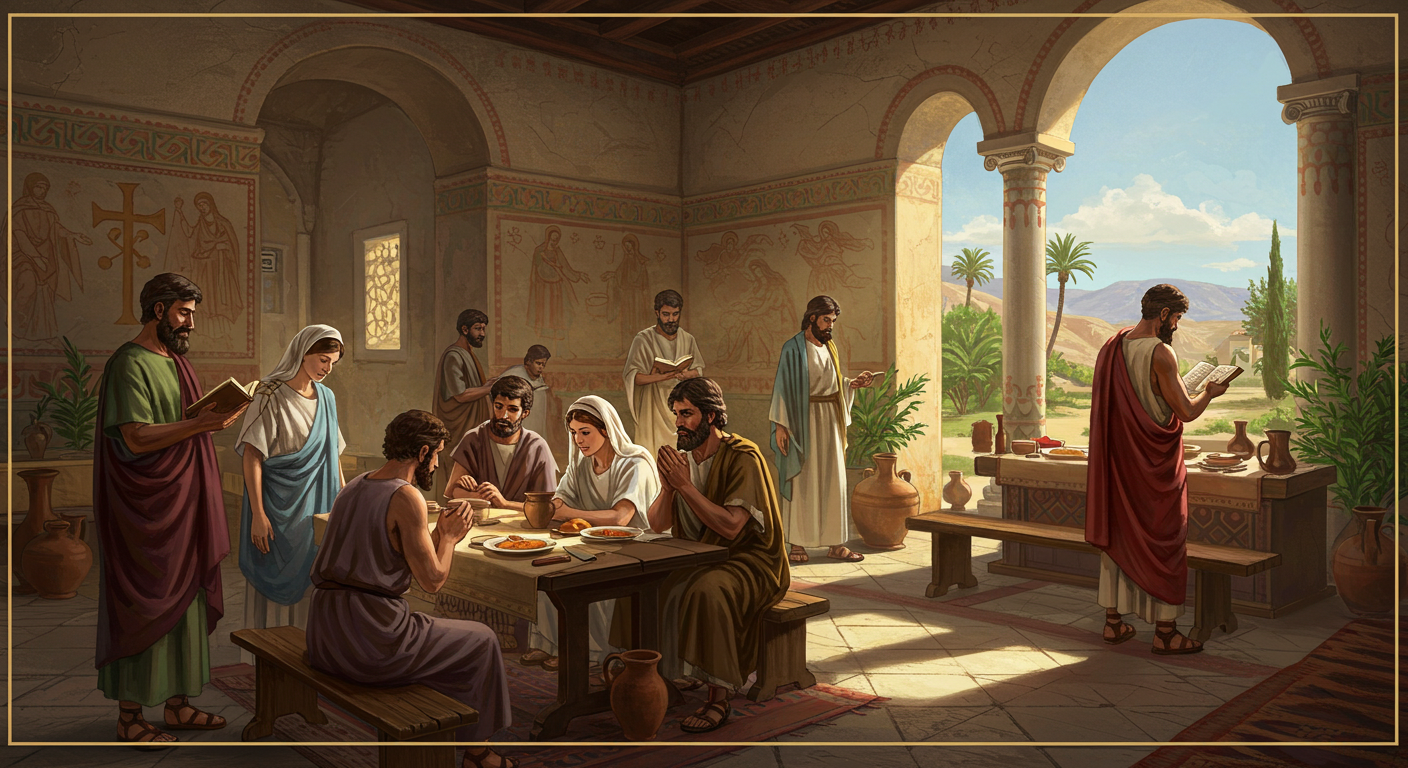
The Early Church – Acts 2:42-47
Introduction
Imagine a time when a growing community of believers gathered in unity, bound by a shared faith and purpose. This was the early church, vibrant and alive, as described in the book of Acts. The passage in Acts 2:42-47 captures the essence of this new movement in history. Here, you’ll explore the significance of these verses and uncover the transformative practices that defined an era. Though it occurred two millennia ago, this narrative still resonates deeply today, providing important lessons about community, devotion, and faith.
The Early Church: Foundation and Practice
The early church described in Acts was born out of an eventful and unprecedented time. Following Christ’s resurrection and ascension, the apostles were left with the monumental task of spreading His teachings throughout the known world. Acts 2:42-47 offers a glimpse into their lives, detailing how they embraced the apostles’ teaching and fellowship, breaking bread, and praying together. This passage paints a picture of a community living in harmony and sharing their lives in genuine fellowship. Together, they cultivated an environment of mutual support that’s evident in the way they held everything in common, selling property and possessions for those in need.
These early believers didn’t merely attend meetings or passively listen; instead, they devoted themselves actively and intentionally. Their lives were intertwined with one another, characterized by worship, communion, and genuine relationships.
Daily Life and Community in the Early Church
The community described in Acts 2 wasn’t just a pleasant social gathering. It was a vibrant, evolving body, teeming with purpose and spiritual vitality. Members engaged in several practices that underpin everything they did. At the heart lay a dedication to the apostles’ teaching — a cornerstone for their spiritual growth. They eagerly listened to these teachings, allowing them to guide their daily lives. This steadfast commitment ensured that the Word remained central in their communal life.
Moreover, the act of breaking bread was more than a shared meal; it was a time for remembrance and unity. Whether in homes or larger gatherings, these meals served as a powerful reminder of Christ’s sacrifice and His enduring presence among them. Praying together was equally pivotal. Communal prayer knit their hearts and aspirations together, aligning them with divine purpose. Their routines might seem simple, but they stood as pillars of an earnest faith, each one deepening their relationship with God and with each other.
Generosity and Sharing Possessions
One of the most striking features of the early church was its radical generosity. As mentioned in Acts 2:45, the members sold their possessions and goods, sharing the proceeds with anyone in need. This was not a communist manifesto but an expression of a heart transformed by faith and care for one another. Their willingness to share stemmed from a recognition that their lives and resources were entwined — a demonstration of sincere concern for their community’s welfare. This level of selflessness is uncommon, and challenging even in modern societies where individualism often prevails. Yet, the early church offers a timeless example of how shared faith can foster boundless compassion and mutual support.
Worship and Relationship with God
The early Christians’ relationship with God spurred their actions. Acts highlight their unwavering devotion to corporate worship and personal piety — a delicate balance that sustained their vibrant faith. Worship wasn’t confined to a designated temple but took place wherever believers gathered. It was in their daily meetings, filled with teaching, fellowship, and song, that the church experienced God’s presence so profoundly. As such, worship became a cornerstone of their existence, a response to God’s overflowing grace and work among them.
In these gatherings, the early Christians praised God and enjoyed the favor of all the people (Acts 2:47). Living with such authenticity opened the door to divine intervention in diverse and unexpected ways. Their wholehearted praise and partnerships marked their spiritual journey, nurturing profound relationships with God and one another. Through this example, we’re reminded of the broader purpose of worship — an intimate connection to the divine, a reflection of community bonds, and a response full of heartfelt gratitude.
Expansion and Attraction of the Early Church
The early church wasn’t just about sustaining itself or its members; it reached outward as much as it solidified its inner workings. Their contagious devotion and vibrant faith garnered favor, as detailed in Acts 2:47. Outsiders took notice of their radical generosity and unity, and they were drawn to their compelling community centered around Christ’s love. Day by day, individuals were added to their number as they turned to this new way of life.
What made this possible? Their genuine affection for one another and their deep commitment to shared values presented a stark contrast to the world outside. This vivid witness matched their evangelism just as much as any spoken testimony. Indeed, the church’s intrinsic attractiveness drew throngs of new believers, visibly demonstrating how radical love and communal life were irresistible.
Lessons for Modern Believers
The early church’s story offers timeless lessons relevant to any era, including today. First, it underscores the power of community. This group of believers wasn’t simply a Sunday gathering. Instead, their lives intertwined in profound ways and provided support and strength to members. Modern believers may consider what it means to be engaged in a similar community, leaning on one another for spiritual, emotional, and practical support.
Additionally, the early church illustrates the importance of unwavering devotion. They stayed committed to teaching, fellowship, worship, and prayer, emphasizing the significance of these core practices. Today’s modern routines and distractions can pull even the most faithful away from these essential spiritual practices. Yet, the early church reveals how such commitment fosters deep-rooted faith, inspiring one to hold these practices more steadfastly.
Lastly, the church’s generosity challenges modern views on possessions and resources. Their example of selflessness echoes through time, posing a pertinent question: How do current believers use their resources to serve others? This poignant reflection asks you to consider what it means to live a life of genuine compassion and sacrificial giving.
Connection to Today’s World
What struck the people of the early church remains resoundingly pertinent for contemporary society — the unity, generosity, and fellowship they exhibited stands as a reminder of what’s possible when you live by faith. In a world where connection often feels fragmented, the early church’s model of genuine community invites reflection on what it truly means to be interconnected through faith.
Modern times have lots of challenges in maintaining deep relationships amid hectic lives. Yet, the early church beckons believers today to cultivate the same fervor, compassion, and intentionality in their communities. Their selflessness also encourages individuals and organizations to view resources not only as personal assets but as opportunities for larger impact and communal well-being.
Ultimately, their unwavering devotion to God invites today’s believers to assess priorities and commitments, inviting His presence more fully into everyday life. For families, communities, and individuals seeking alignment, reflecting on these principles offers profound guidance and inspires the pursuit of deeper faith and connection.

Key Bible Verse
A key verse from this narrative is Acts 2:46-47: “Every day they continued to meet together in the temple courts. They broke bread in their homes and ate together with glad and sincere hearts, praising God and enjoying the favor of all the people.” This encapsulates the essence of the early church’s practices and spirit — their harmony, shared life, and sincere devotion served as both testimony and transformation in a world that craved authenticity and truth.
Thought-Provoking Question
Reflect on this: In a world laden with distractions, how can you embody the early church’s spirit of togetherness, devotion, and selflessness in your life today? What steps can you take to foster these practices both personally and communally?
Historical and Cultural Context
Understanding the historical and cultural context of this passage enriches its meaning. Early Christian communities formed in a predominantly Jewish environment, and these believers were at a pivotal intersection between Jewish traditions and new teachings of Jesus. Living under Roman rule, they navigated complex dynamics, both religious and sociopolitical. Their unconventional unity and adherence to Christ’s teachings were countercultural, distinguishing them starkly against the normalized status quo.
This juxtaposition highlights their courageous commitment to faith, risking social ostracism and persecution. Yet, it is precisely this backdrop that amplifies the striking impact of their practices and the growth of their communities.
Comparison with Other Biblical Figures
In drawing comparisons, consider the community of believers in Acts alongside the Israelites during their wilderness journey. Both groups learned to rely on one another for support, yet their circumstances reflected the most glaring differences. While Israelites contended with challenges of physical survival and divine promise, early Christians grappled with spiritual survival and sharing the gospel. The latter’s context highlights their resilience and shared purpose, challenging believers today to consider what it means to band together with similar convictions.
Prayer
Heavenly Father, inspire us with the fervor of the early church. May we embrace community, cultivate unwavering faith, and practice radical generosity. Fill our hearts with love for one another and alignment with Your purpose. Grant us courage to live counterculturally, bearing witness to Your grace, mercy, and truth. In all we do, help us to reflect Your light and kindness. Amen.


